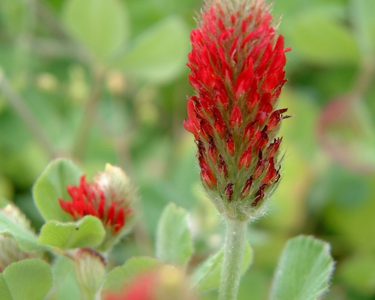Soil
Managing your soil

Healthy, fertile soil, with a good structure, allows plants to absorb water and nutrients, and encourages strong growth. And you don’t need artificial fertilisers.
Feeding soil
To feed the soil, and improve its structure, use bulky materials like garden compost, rotted manures or leafmould. These materials release nutrients slowly, improve soil conditions, and stimulate essential microorganisms. Growing green manures is another organic technique for soil improvement. Liquid feeds can help your plants in times of stress, mycorrhizal fungi improve root nutrition uptake and worms will sort out your soil. Finally, you may like to try the No-Dig method - which uses thick mulches to suppress weeds.
See the Garden Organic Soil Pack for further information on how to create and manage your perfect soil.
If you want to plant up flowerpots and containers, see our Peat-Free growing page for advice on getting just the right soil mix.
Compost
To make your own compost, see Home Composting – where you will find tips and videos on how to create a productive compost heap. It's a wonderfully satisfying process, turning waste into black gold. And your plants will thank you for it. Adding homemade compost to your soil also helps to manage its texture. It will bulk up loose, sandy soil; and it will break up and aerate heavily compacted soil, such as clay. The ideal texture feels rich and crumbly, which allows roots to penetrate and water to drain.
If you are unable to make your own compost, or not in sufficient quantity, you can buy organic compost from a reputable certified organic source. You can also source well-rotted farm manure - again, make sure it is from an organic farm.
If you buy bags of 'compost' from a garden centre, you are in fact getting a light textured growing medium. This is not the same as your own homemade compost. Make sure you get 'peat-free' and organic if possible. See Garden Compost or Potting Compost for full advice.
Garden Organic offers courses on Composting and other organic growing techniques. See here for dates and further information.
Soil pH
pH is the measurement of the acidity/alkalinity level of the soil. Knowing your own soil pH helps you decide which plants will grow successfully, or what you need to do to increase productivity. Soil testing kits vary in price (they are available at garden centres and online), but all of them use a scale of 1 to 14, with the neutral point at 7. Between 1 to 6 indicates an acid soil and 8 to 14 alkaline. Most vegetables grow in a range between 6.5 – 7, and fruit in 6 – 6.5.
It is best organic practice to work with the soil you have. If, however, your pH is outside the range of 6.5 - 7, then you can make some adjustments. Very acidic (low pH) soils can be adjusted by applying lime. Chalky soils (high pH) will need plenty of compost (such as chicken manure pellets) not just to restore deficiencies in nutrients, but also to improve soil structure.
Green Manures
Green manures are plants grown to improve the soil’s structure and fertility. After growing you dig them back into the soil – leaves, stems, roots, and all. They are particularly helpful if you don’t have access to manure or compost, and they can feed a bare patch of land waiting for cultivation, and prevent nutrients from being lost or washed away.
They also help keep down weeds, prevent soil damage from extreme weather, and keep the soil loose and aerated. Some can even provide a quick energy boost between spring and summer crops. See this list of Popular Green Manures.
Liquid Feeds
Liquid fertilisers, such as comfrey and nettle feed, can be used to help plants during critical periods, such as blooming, after transplanting, during fruit set or drought. Their main use is in container growing, especially for summer flowering hanging baskets.
Feeds contain a combination of nutrients, including the most important - Nitrogen, Phosphorus, and Potassium. It is easy to make your own. All you need to do is soak certain leafy plants in water to create a ‘brew’. Nettles, for instance, create a high nitrogen feed – excellent for green growth – as well as magnesium and iron. But the king of all brews is made from comfrey leaves. See Comfrey for Gardeners. Comfrey will provide all three key nutrients in the right proportions.
However, our Master Composter says, "It is a common temptation for organic growers to overuse liquid fertilisers. While they are useful to boost flowering or fruiting, the nutrients in your well-managed soil should provide all the plant’s needs throughout its growing life. Think of a healthy person taking unnecessary extra vitamins! "
Join Garden Organic!
By becoming a Garden Organic member you can join thousands of people who are already leading the movement for an organic and sustainable future for us all. And get great member benefits!
Join today